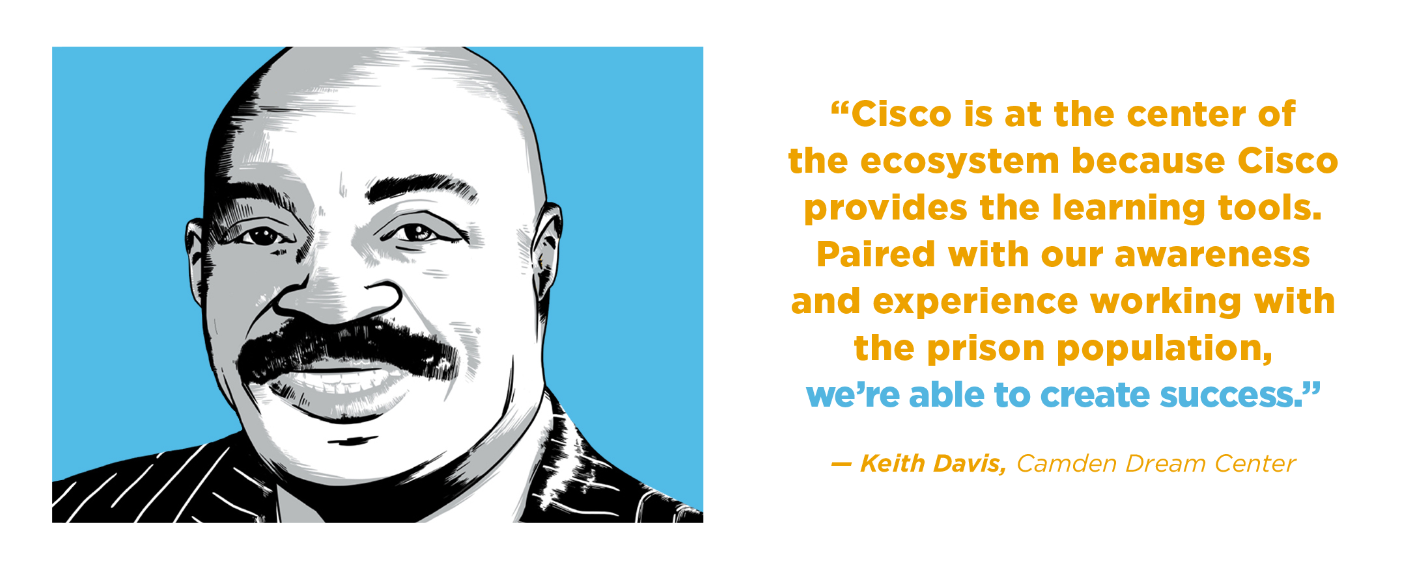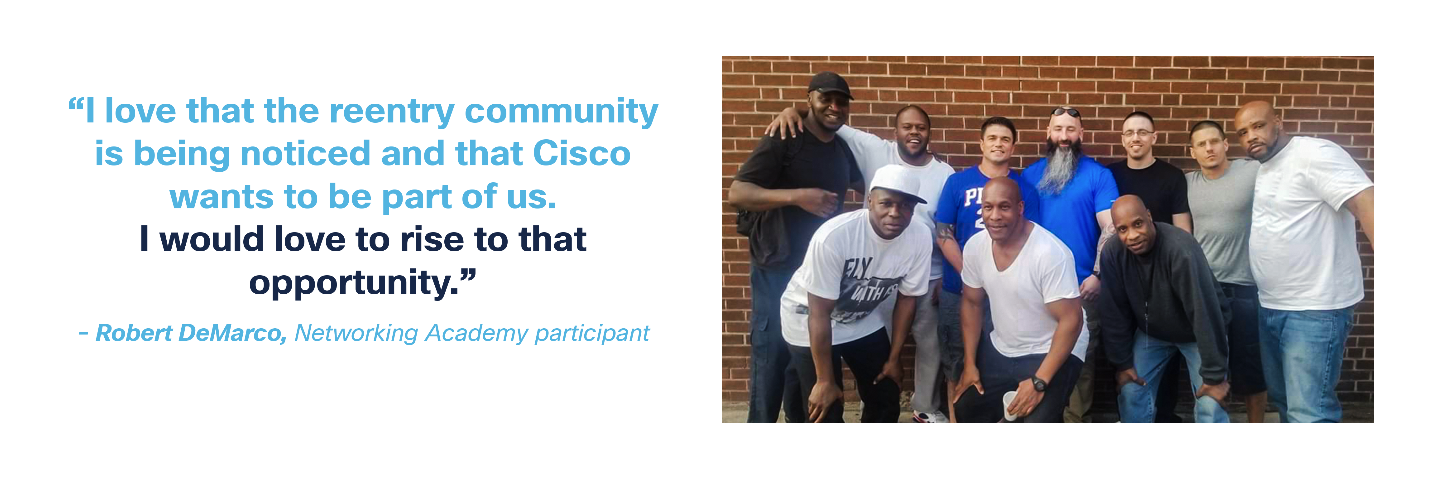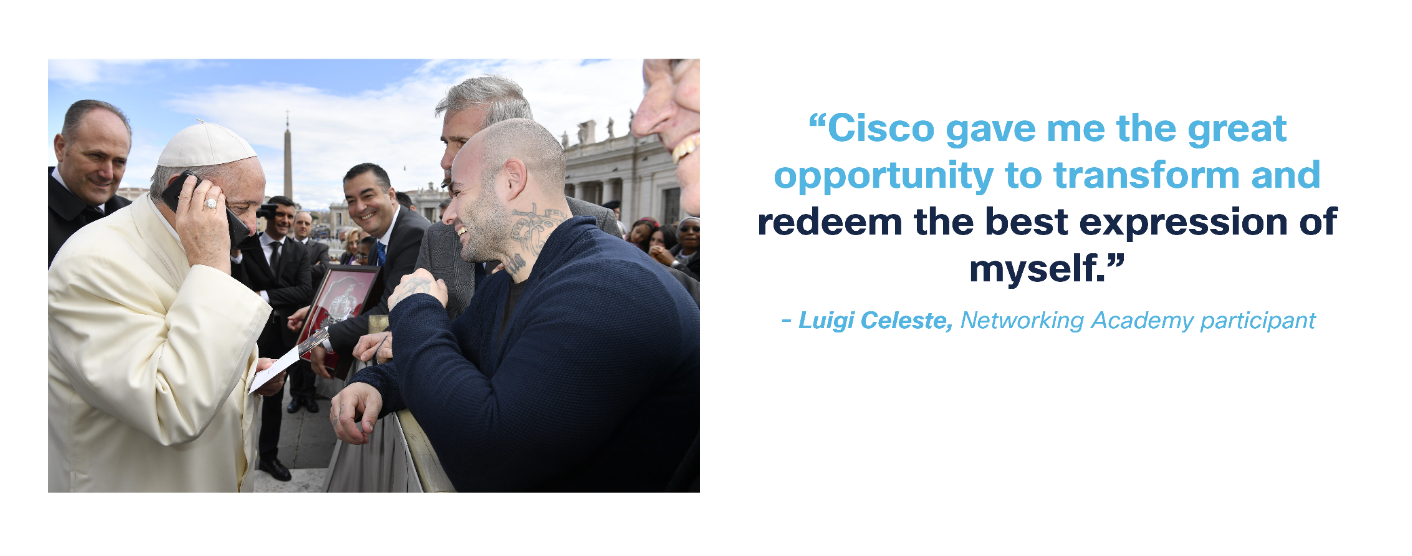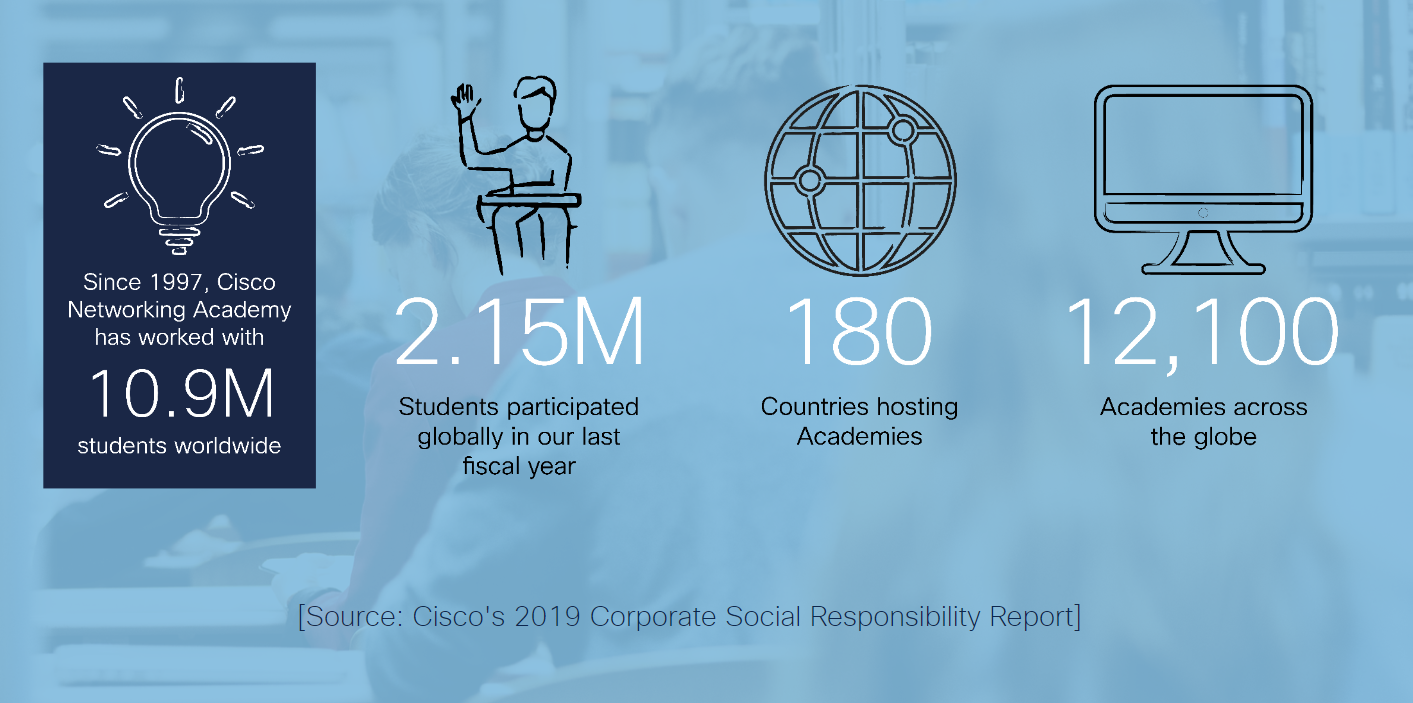Cisco Networking Academy, sowing hope in prisons the world over
In struggling communities around the world, the cycles of despair are tough to break.
Take Camden, New Jersey. More than half the city’s residents live below the poverty line, and 20 percent of adults are unemployed. For many of Camden’s young people, crime beckons. Prison follows. Eventually, they’re back on the streets with no skills and a stigma that thwarts future job prospects. So crime (and prison) loom again.
Thousands of miles away, in Italy, it’s no different. The unemployment rate for people under age 25 has approached 40 percent in recent years. And nearly 70 percent of released inmates end up back in prison.
But despite such stark numbers, Cisco Networking Academy is sowing hope for prisoners with few prospects for a better life. With classes that range from basic IT skills to advanced cybersecurity, inmates gain real-world skills and, equally important, confidence.
Whether in Italy or New Jersey, Nigeria or Brazil, the results speak volumes.
Francesco Benvenuto is director for government affairs, Cisco Italy, and a passionate supporter of the prison outreach program. Since 2010, he’s been volunteering his time in prisons across Italy, like Bollate Penitentiary outside Milan.
“The recidivism in Italy is 70 percent in other prisons,” said Benvenuto. “But the Cisco Networking Academy students have a recidivism of zero percent. Because even if they don’t achieve a difficult Cisco certification, after following the classes, they decide to do other kinds of jobs, honest jobs.”
In Camden, Pastor Keith Davis — who calls himself the “techiest preacher you’ll ever meet” — is battling recidivism in his community. As founder of the Camden Dream Center, he helps drive a wide range of community services, from family counseling and job training to substance abuse and children’s programs. But shepherding inmates in their journey to rejoin society is a key commitment.
Central to that effort is the Dream Center’s status as a Cisco Networking Academy support and training center — offering the critical skills that can transform an ex-inmate’s life.
“When I semi-retired and began partnering with Cisco, I began to see a whole new way in which I could give back,” said Davis, a former cybersecurity consultant and executive. “I wasn’t just mentoring inmates and encouraging them to seek better ways. I had another tool available.”
That tool was his own deep expertise in management and digital technologies. Combined with the Cisco partnership — and sheer force of will — Davis is on a mission to transform lives in a place where opportunity is scarce.

The Camden Dream Center applies an end-to-end approach, targeting every stage at which a person can fall behind in society. Inmates are supported from prison to halfway houses and beyond — with everything from housing and transportation assistance to peer-to-peer counseling and the reskilling that Networking Academy offers.
“Before release, you have to have a lot of that in place,” Davis stressed. “We call it prerelease, then post-release. And by the time they’re ultimately released, they are really well on their way. Their future is in place and recidivism at that point is significantly reduced.”
Davis is excited every time he sees an inmate inspired by the prospect of a better future.
“You get the few diamonds in the rough,” he continued. “They see the vision, and they see the possibilities. And these are the persons who enroll in college, enroll for technology classes and courses. But as long as we have supported them personally, address the cause of their incarceration, we consider that a success.”
One such “diamond in the rough” is an inmate named Robert DeMarco who plans to use his Network Academy skills to counsel and train others facing the challenges of reentry.
“It’s an incredible opportunity,” said DeMarco, who is finishing his sentence at Camden’s Hope Hall halfway house. Thanks to an in-prison program, DeMarco will combine his technology skills with a degree in social work from Rutgers University upon his full release.

Luigi Celeste, who was first incarcerated at age 18, and then from 23 to 30, is one of the Italian program’s success stories. Benvenuto mentored him for years as he worked toward a Cisco cybersecurity certification, then helped him land a job with a multinational company once he finished his sentence.
“I could finally begin my climb into the networking field, one step at a time, up to become the man that I am now, and the man that I’ll be tomorrow,” said Celeste.

By supporting inmates like DeMarco and Celeste, Cisco Networking Academy is helping to create win-win scenarios for individuals, communities, and the business world.
After all, good tech talent is always in short supply.
“There is a pool of talent in underserved, underutilized communities,” Davis said, “brilliant kids who have never really been given the opportunity, let alone exposure to this whole different way of thinking.”
Benvenuto is helping to extend Networking Academy’s offerings to Italy’s homeless. And he believes the prison outreach could inspire anyone striving to overcome deep challenges.
“We can demonstrate to everybody who would want to start changing their lives,” he said. “It’s possible, even in prison.”

Cisco is powering a more Inclusive Future for all.
Our Networking Academy Prison Outreach Playbook offers ready-made tools and guidance to transform lives in correctional and at-risk facilities — from Camden to Milan and around the world.
[This story was first published on the Cisco Network as part of Cisco’s ‘Portraits of Possibility‘ series. It is reproduced here with thanks.]